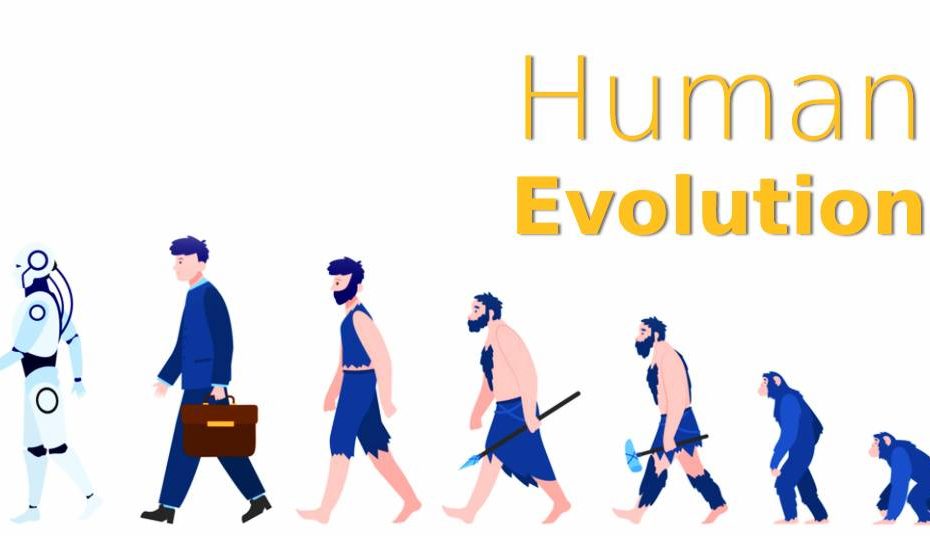Understanding the ways in which human evolution has influenced society and culture can be a complex process. But a closer analysis of the diversity of life found in genetics and scientific exploration helps to shed light on the origin and development of our species.
It’s important to start by looking at how the interaction between men and women, their proximity and intimacy, can be related to evolution. After all, sex is always part of the equation when analyzing how humans arrived at where we are today. By understanding how sexuality and good porn have evolved, we can gain insight into how today’s behaviors were borne out of evolutionary necessity starting with man-woman interaction, proximity, and intimacy.
So let’s take a look at how sex and the evolution of humanity have been intertwined over the millennia. We’ll begin by examining some key elements that help to explain why our species has been so successful in its adaptability. From there, we’ll explore variations in language and cultural nuances that have played a part in making us who we are today.
Human evolution is a complex topic, but one that can offer insight into our understanding of culture, diversity, and the origin and development of species. We can better appreciate the differences between us by looking more closely at genetics and science. By exploring how human evolution has impacted society and culture, we can gain insight into our collective development as a species.
Genetics & Natural Selection
Genetics is a complex subject, and understanding how it has impacted human evolution and the development of our species is often a difficult concept to grasp. But with a deeper look, you’ll be able to understand that genetics plays an important role in the context of natural selection.
Natural selection is the driving force behind diversity, and the concept has been observed throughout many different species, including humans. This process of change occurs when organisms with adaptive traits have an advantage over those who don’t have such traits in order to survive. As a result, they’re more likely to reproduce, passing on their genetic code and giving rise to a new and improved version of the species.
This process, which ultimately results in greater variation within any given species, sets the stage for further evolution and adaptation over time. And it’s this same process that has transformed humanity into its current form, allowing us to create complex societies while adapting to our ever-changing environments.
Impact on Society & Culture
Did you know that human evolution has had a huge impact on society and culture? It’s true! As humans have evolved, cultures have changed and social norms have shifted. Let’s take a closer look at how human evolution has impacted the way we live today.
Technology
Humans have been able to develop more sophisticated technologies over time. We’ve gone from simple tools like the bow and arrow to complex machines like computers, phones, and cars. This has had a huge impact on our lives, from the way we communicate to how we produce goods and services.
Social Structures
The evolution of social structures is closely linked to technological advancements. Over time, humans have created intricate societies with distinct roles, classes, and rules. Today, these structures are still shaped by the advances in technology, think of the digital divide or income inequality.
Cultural Values & Norms
Human evolution has also shaped our values and beliefs in profound ways. From religious beliefs to moral values, our culture is heavily influenced by the evolutionary changes we’ve gone through as a species. These values are constantly shifting as we continue to evolve both biologically and culturally.
It’s amazing how much of an impact human evolution has had on today’s world, from technology to social structures to cultural values, all of which continue to shape our future!
Development of Species
The subject of genetics provides us with a remarkable window into the past, letting us explore how human evolution and its influence on culture have shaped the world as we know it. A closer look at genetics helps paint a vivid picture of how species originate, develop, and evolve over time.
By studying genetic variation, and how genes are passed down from parent to child, from generation to generation, scientists can gain insight into the history of our species and its unique diversity. For instance, analyzing chunks of DNA allows us to trace migration paths and gain an understanding of how human populations transition over time.
Just like a family tree can provide us with insight into ancestry and heritage, scientists can use genetic information to reconstruct evolutionary timelines that shed light on our past. Additionally, genetics can help explain why some populations are more vulnerable to certain diseases or environmental changes than others.
From providing details about our ancient origins to helping us understand modern-day health disparities, studying genetics has the potential to provide invaluable insight into human evolution and its impact on society and culture.
Our species has a fascinating history and it is fascinating to discover the origin and development of all the different species that form the fabric of our world. We can learn much from the diversity of life and the amazing way that our genetic makeup has played a key role in how we interact with each other and our environment. We can better appreciate how our ancestors have shaped us and our future by taking a closer look at our genealogy and the fascinating developments in our genomes. With further research, we also might be able to better understand the far-reaching effects of environmental and cultural changes on the development of species and how this may continue to shape our evolutionary story in the years to come.
